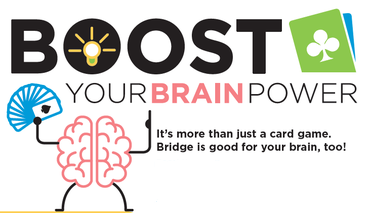One of the main benefits of playing bridge is that it can improve mental agility and cognitive function. The game requires players to constantly think ahead and make strategic decisions, which helps to exercise the brain and improve problem-solving skills. Studies have shown that regular participation in activities like bridge can help to reduce the risk of cognitive decline and improve overall brain health.
In addition to its cognitive benefits, bridge is also a social game that promotes social interaction and communication. It is often played in a group setting, which provides an opportunity for players to interact with others and make new friends. Playing bridge can also improve communication skills, as players must effectively communicate with their partners and opponents in order to strategize and make the best moves.
Another benefit of playing bridge is that it can reduce stress and improve mental wellbeing. The game requires concentration and focus, which can help to distract the mind from daily stressors and provide a sense of relaxation and enjoyment. Participating in a hobby like bridge can also provide a sense of accomplishment and boost self-esteem.
Finally, bridge is a game that can be enjoyed by people of all ages and skill levels. It is a versatile game that can be played in a casual setting with friends and family, or in a competitive environment at tournaments. This makes it an accessible and enjoyable activity for people of all ages.
In conclusion, playing the card game bridge offers a range of benefits, including improved mental agility, social interaction, stress reduction, and enjoyment. Whether you are a seasoned player or new to the game, bridge is a worthwhile activity that can provide numerous benefits for the mind and body.
Boost Your Immune System
A 2000 study at the University of California-Berkeley indicated playing contract bridge can provide a boost to
your immune system.1
Improve Test Scores
In 2005, Illinois researcher Dr. Christopher Shaw discovered that fifth grade students who were taught bridge scored higher
on standardized tests than their non-playing counterparts.2
Stimulate Your Mind
In 2017, Mayo Clinic researchers found those with a genetic link to Alzheimer’s were less likely to develop the mental
decline that sometimes precedes dementia if they participated in mind-stimulating activities like web-surfing, playing bridge and socializing.3
Delay Your Symptoms
Researchers at the Albert Einstein College of Medicine found seniors who regularly engage in mentally challenging activities later in life can potentially delay their symptoms or reduce their risk of developing Alzheimer’s and other dementias.4 Additionally, research released by the University of Wisconsin-Madison discovered that “participants who engaged in cognitive activities like card games have higher brain volume, in specific regions, compared to peers who played fewer or no games.”5
Reduce Your Risk
The 90+ Study found evidence suggesting that people who spend three or more hours each day on mental activities like playing cards may be at a reduced risk for developing dementia. Seniors who participated in brain-stimulating activities regularly lowered their risk of developing dementia by as much as 75% compared to those who didn’t participate in those activities.6
Sources
http://www.cnn.com/2000/HEALTH/11/09/health.bridge.reut/index.html1
http://www.btfy.org/documents/BridgeEducation_091712.pdf2
https://www.statnews.com/2017/01/30/aging-brain-games-crafts/3
http://brainmap.wisc.edu/publications/1534
https://www.medscape.com/viewarticle/7855025
https://www.nytimes.com/2009/05/22/health/research/22brain.html6





